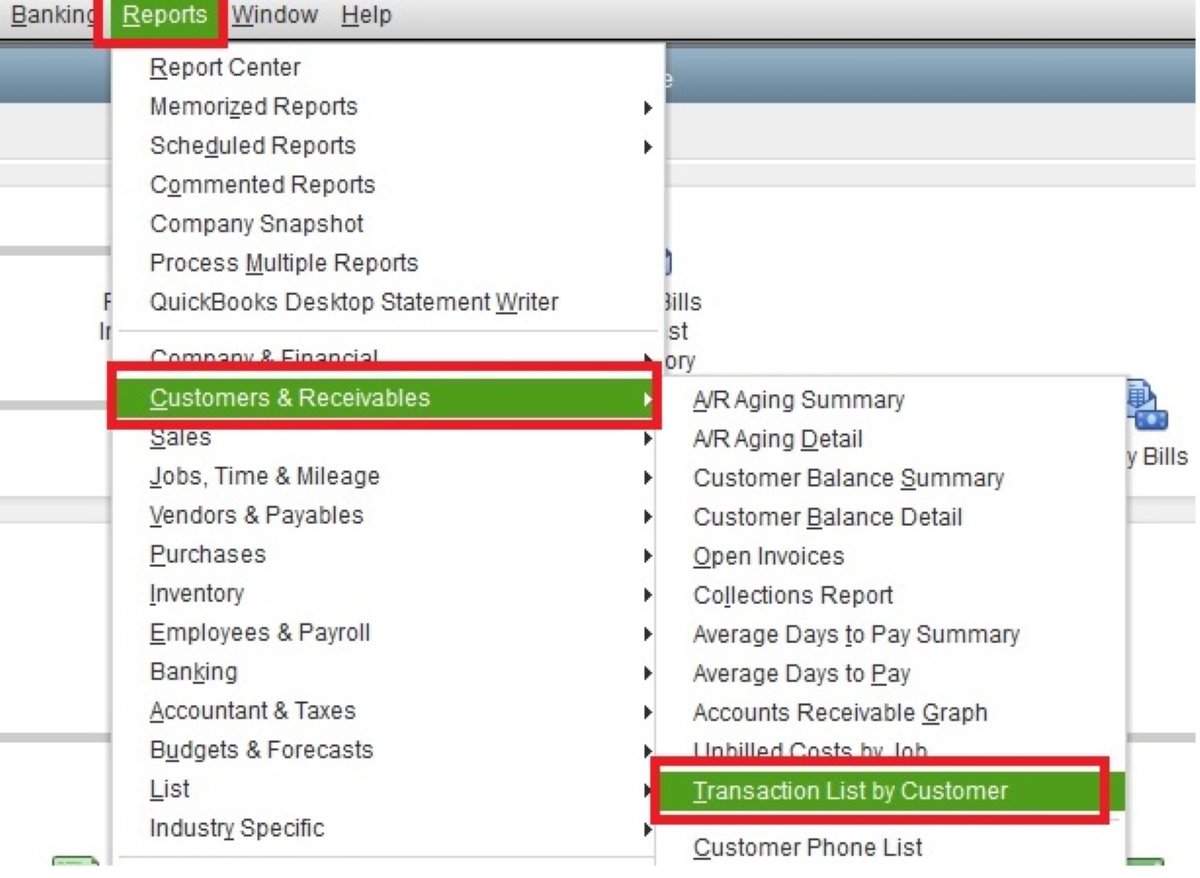

Finance
How To Update Credit Report Quickly
Modified: March 4, 2024
Learn effective strategies to quickly update your credit report and improve your financial standing. Take control of your finances with these proven tips and techniques.
(Many of the links in this article redirect to a specific reviewed product. Your purchase of these products through affiliate links helps to generate commission for LiveWell, at no extra cost. Learn more)
Table of Contents
- Introduction
- Understanding Credit Reports
- Reasons to Update Your Credit Report
- Steps to Update Your Credit Report Quickly
- Review Your Current Credit Report
- Dispute Errors or Inaccurate Information
- Consolidate or Pay Off Debts
- Regularly Pay Bills on Time
- Limit New Credit Applications
- Maintain a Low Credit Utilization Ratio
- Consider Credit Counseling or Debt Management Programs
- Tips for Updating Your Credit Report Efficiently
- Conclusion
Introduction
Welcome to the world of credit reports, where your financial history and behavior are closely scrutinized. A credit report is a comprehensive record of your borrowing and repayment activities, serving as a vital tool for lenders, employers, and other entities to assess your creditworthiness. It contains information about your credit accounts, payment history, outstanding debts, and public records such as bankruptcies or judgments.
Keeping your credit report up-to-date is crucial for maintaining a healthy financial profile. It not only affects your ability to secure a loan or credit card but also plays a role in determining the interest rates you’ll be offered. Inaccurate or outdated information on your credit report can lead to higher borrowing costs or even prevent you from obtaining credit altogether.
In this article, we will explore the importance of updating your credit report and provide you with practical steps to accomplish this task quickly and effectively. Whether you’re planning to apply for a loan or just want to ensure your credit information is accurate, following these steps will pave the way for a smoother financial journey.
Understanding Credit Reports
Before diving into the process of updating your credit report, it’s important to have a clear understanding of what a credit report entails. A credit report is a document that encompasses your credit history and financial activities. It is generated by credit bureaus, such as Equifax, Experian, and TransUnion, which gather information from various sources, including lenders, creditors, and public records.
Your credit report contains several key components, including:
- Personal Information: This section includes your name, address, social security number, and other identifying details. It helps lenders verify your identity when reviewing your creditworthiness.
- Credit Accounts: This section provides a detailed list of your credit accounts, such as credit cards, loans, and mortgages. It includes information about the lender, the account balance, the credit limit, payment history, and any late payments or defaults.
- Public Records: If you have any public financial records, such as bankruptcies, tax liens, or civil judgments, they will be listed in this section. These records can significantly impact your creditworthiness.
- Inquiries: This section shows a record of the times your credit report was accessed by lenders, credit card issuers, or other entities. There are two types of inquiries: hard inquiries, which occur when you apply for new credit, and soft inquiries, which happen when companies check your credit for pre-approved offers or background checks.
It’s important to note that credit scores are separate from credit reports. While credit reports contain detailed information, credit scores provide a numerical representation of your creditworthiness based on the information in your credit report. Your credit score plays a significant role in determining whether you qualify for credit and what interest rates you’ll be offered.
Now that you have a clearer understanding of what a credit report encompasses, let’s explore the reasons why keeping it up-to-date is essential.
Reasons to Update Your Credit Report
Keeping your credit report accurate and up-to-date is crucial for several reasons. Here are some key benefits of regularly updating your credit report:
- Access to Better Credit Opportunities: A clean and updated credit report improves your chances of accessing favorable credit opportunities. Lenders and creditors rely on accurate credit reports to assess your creditworthiness and determine whether to approve your applications for loans, credit cards, or mortgages.
- Improved Interest Rates: A positive credit report can help you secure lower interest rates on loans and credit cards. Lenders typically reward borrowers with good credit scores and history by offering them more favorable interest rates, resulting in significant savings over the life of a loan.
- Easier Employment Screening: Some employers conduct credit checks as part of the hiring process, especially for positions that involve financial responsibilities. Keeping your credit report updated ensures that potential employers receive accurate information, helping you maintain a good impression during the hiring process.
- Better Rental Opportunities: Landlords often review credit reports before approving rental applications. An updated credit report with a positive payment history and low debt levels can enhance your chances of securing a desirable rental property.
- Protection Against Fraud: Regularly reviewing and updating your credit report can help you detect any signs of fraudulent activity or identity theft. By promptly identifying and disputing any unauthorized accounts or transactions, you can protect your financial well-being and minimize the impact on your credit score.
These reasons highlight the importance of proactively managing your credit report and ensuring that the information it contains accurately represents your financial history and behavior. Now that we understand why updating your credit report is crucial, let’s explore the steps you can take to update it quickly and efficiently.
Steps to Update Your Credit Report Quickly
If you’re determined to update your credit report quickly and improve your creditworthiness, follow these steps:
- Review Your Current Credit Report: Start by obtaining a copy of your credit report from each of the three major credit bureaus. Carefully review the information provided to identify any errors, inaccuracies, or outdated information.
- Dispute Errors or Inaccurate Information: If you find any errors or inaccuracies in your credit report, take immediate action to dispute them. Contact the credit bureau in writing, providing evidence or supporting documents to back up your claim. The credit bureau is required by law to investigate and resolve your dispute within a specific timeframe.
- Consolidate or Pay Off Debts: High levels of debt can negatively impact your credit score. Consider consolidating multiple debts into a single loan or credit card with a lower interest rate. Alternatively, create a repayment plan to pay off your debts systematically, starting with high-interest obligations.
- Regularly Pay Bills on Time: Late payments can severely damage your credit score. Make it a priority to pay your bills on time to demonstrate responsible financial behavior. Consider setting up automatic payments or reminders to ensure you never miss a payment.
- Limit New Credit Applications: Each time you apply for new credit, a hard inquiry is recorded on your credit report. Too many inquiries can indicate financial instability to potential lenders. Limit the number of credit applications you submit, only applying for credit when necessary.
- Maintain a Low Credit Utilization Ratio: Your credit utilization ratio is the percentage of your available credit that you utilize. Aim to keep this ratio below 30% to demonstrate responsible credit management. Pay down outstanding balances and avoid maxing out your credit cards.
- Consider Credit Counseling or Debt Management Programs: If you’re struggling to manage your debts, seek the assistance of a nonprofit credit counseling agency. They can provide guidance, create a budget, and negotiate with creditors on your behalf to help you regain control of your finances.
By following these steps, you’ll be well on your way to updating your credit report quickly and effectively. However, there are some additional tips to keep in mind that can further streamline the process.
Review Your Current Credit Report
The first step in updating your credit report is to review your current credit report thoroughly. Obtain a copy of your credit report from each of the three major credit bureaus: Equifax, Experian, and TransUnion. You’re entitled to one free copy of your credit report from each bureau per year, which you can request through annualcreditreport.com.
Take the time to carefully examine each section of your credit report, paying close attention to the following:
- Personal Information: Check if your name, address, social security number, and other personal details are accurately listed. Mistakes in personal information can lead to discrepancies in your credit report.
- Credit Accounts: Review the list of credit accounts, such as credit cards, loans, and mortgages, on your report. Ensure that all the accounts are indeed yours and that the information regarding the lenders, account balances, credit limits, payment history, and any late payments or defaults are accurate.
- Public Records: Look for any public records, such as bankruptcies, tax liens, or civil judgments. If these records are listed inaccurately or have been resolved but are still present on your report, you should take immediate action to dispute them.
- Inquiries: Check for any unauthorized or incorrect inquiries on your credit report. If you notice inquiries that you did not authorize or that are not associated with your credit activity, contact the credit bureaus to have them investigated.
If you come across any errors, discrepancies, or outdated information, make note of them. These inaccuracies can adversely impact your credit score and overall creditworthiness, so it’s essential to address them promptly.
Note: It’s worth mentioning that credit reports can be complicated, and deciphering them may require some financial literacy. If you need assistance understanding your credit report or identifying any potential errors, consider seeking guidance from a credit counseling agency or a financial advisor.
Once you have thoroughly reviewed your current credit report and noted any discrepancies, you can move on to the next step: disputing errors or inaccurate information with the credit bureaus.
Dispute Errors or Inaccurate Information
If you discover any errors or inaccuracies on your credit report during the review process, it’s crucial to take immediate action to correct them. Inaccurate information can have a significant impact on your credit score and may affect your ability to secure credit in the future.
To dispute errors or inaccurate information on your credit report, follow these steps:
- Gather Documentation: Collect any supporting documentation that proves the error or inaccuracy. This could include bank statements, payment receipts, or correspondence with creditors.
- Write a Dispute Letter: Prepare a detailed dispute letter to the credit bureau(s) that reported the error. In your letter, clearly state the inaccurate information, explain why it is incorrect, and provide any relevant supporting documentation. Be sure to include your full name, address, and account number(s) related to the disputed information.
- Send the Dispute Letter: Send the dispute letter to the credit bureau(s) via certified mail with a return receipt requested. This will provide proof that your dispute was submitted and received. Keep copies of all documents for your records.
- Allow Time for Investigation: The credit bureau has 30 to 45 days to investigate your dispute, depending on your location. They will contact the creditor or lender associated with the disputed information to verify its accuracy. If the information is found to be incorrect, the credit bureau will update your credit report accordingly.
- Review the Updated Report: Once the investigation is complete, review the updated credit report from the credit bureau. Verify that the inaccurate information has been corrected or removed. If any issues remain unresolved, follow up with the credit bureau and provide any additional documentation or information as needed.
It’s important to dispute errors or inaccurate information with all three major credit bureaus since each bureau may have slightly different information in their reports. Sending individual dispute letters to each bureau can help ensure that the necessary corrections are made across the board.
Remember, accurate and up-to-date information is essential for maintaining a healthy credit profile. By promptly disputing errors or inaccuracies, you can protect your creditworthiness and improve your overall financial situation.
Once you have addressed any errors or inaccuracies on your credit report, you can move on to the next steps in updating your credit report quickly. These steps include consolidating or paying off debts, maintaining a low credit utilization ratio, and more, which we will explore in the following sections.
Consolidate or Pay Off Debts
If you have multiple debts, consolidating or paying them off can have a significant impact on your credit report and overall financial health. By reducing your outstanding debts, you can improve your credit utilization ratio and demonstrate responsible financial management to lenders. Here are some strategies to consider:
Debt Consolidation:
- Personal Loan: If you have several high-interest debts, such as credit card balances, you can consolidate them into a single personal loan with a lower interest rate. This allows you to simplify your payments and potentially reduce your overall interest costs.
- Balance Transfer: Another option is to transfer high-interest credit card balances to a new credit card that offers a low or 0% introductory interest rate. This strategy can help you save on interest charges and accelerate your debt repayment.
- Home Equity Loan or Line of Credit: If you own a home, you may be able to utilize its equity to consolidate your debts. A home equity loan or line of credit can provide you with a lump sum or a revolving line of credit, allowing you to pay off your debts and potentially benefit from a lower interest rate.
Debt Repayment:
- Snowball Method: Under the snowball method, you focus on paying off your smallest debts first, while making minimum payments on the rest. As each small debt gets paid off, you roll the payment towards the next smallest debt. This approach can provide a psychological boost as you see debts being eliminated one by one.
- Avalanche Method: With the avalanche method, you prioritize debts with the highest interest rates first. By directing extra payments towards those high-interest debts while making minimum payments on the others, you can save on interest costs over the long term.
- Accelerated Payments: Regardless of the repayment method you choose, consider making extra payments whenever possible. Even small additional payments can make a significant difference in reducing your debt over time.
By consolidating your debts or paying them off, you not only reduce your overall debt burden but also demonstrate responsible financial behavior to potential lenders. This can positively impact your credit report and improve your creditworthiness.
Remember to regularly monitor your credit report after consolidating or paying off debts to ensure that the updates are reflected accurately. Now that you have strategies for managing your debts, let’s move on to the next step: paying your bills on time.
Regularly Pay Bills on Time
Consistently paying your bills on time is crucial for maintaining a positive credit history and improving your credit report. Payment history is one of the most significant factors in determining your creditworthiness. Late or missed payments can have a detrimental effect on your credit score and make it harder for you to secure future credit. To ensure you stay on track with your bill payments, consider the following strategies:
- Create a Budget: Establishing a budget can help you keep track of your income and expenses. Allocate funds for your bills, ensuring that you have enough money set aside to cover them on time.
- Set Up Payment Reminders: Utilize payment reminders through your banking app or set up calendar alerts to remind you of upcoming due dates. These reminders can help you avoid forgetting to make payments and ensure they are made on time.
- Automate Payments: If feasible, set up automatic payments for your bills. This way, the required amounts will be deducted from your bank account on the due dates, eliminating the risk of missing a payment.
- Pay More Than the Minimum: Whenever possible, pay more than the minimum amount due on your bills. By doing so, you can reduce your outstanding balances more quickly and potentially save on interest charges.
- Communicate with Creditors: If you are experiencing financial difficulties and are unable to make a payment on time, reach out to your creditors. Discussing your situation and potential options with them can help you avoid late payment penalties and maintain a positive relationship.
Consistently paying your bills on time demonstrates responsibility and a commitment to honoring your financial obligations. This positive practice is reflected in your credit report and can strengthen your creditworthiness over time.
In addition to paying your bills on time, another important factor to consider is limiting the number of new credit applications you submit. We’ll explore this in the next section.
Limit New Credit Applications
When it comes to updating your credit report quickly and efficiently, it’s important to be mindful of the number of new credit applications you submit. Each time you apply for credit, whether it’s for a credit card, loan, or mortgage, a hard inquiry is recorded on your credit report.
Multiple hard inquiries within a short period can have a negative impact on your credit score. It may signal to lenders that you are taking on excessive debt or facing financial difficulties. To minimize the potential negative effects on your credit report, follow these guidelines:
- Apply Only When Necessary: Avoid applying for credit unless you truly need it. Carefully consider whether the new credit is essential and aligns with your financial goals.
- Do Your Research: Before submitting a credit application, research different lenders and credit products to find the best fit for your needs. Compare interest rates, terms, and eligibility requirements to ensure you are making an informed decision.
- Submit Applications Strategically: If you need to apply for multiple credit products within a short timeframe, try to do so within a 14- to 45-day window. Credit scoring models typically treat multiple inquiries made within this period for a specific type of loan as a single inquiry, minimizing the impact on your credit score.
- Monitor Pre-Approval Offers: Be cautious of unsolicited credit offers that arrive in your mailbox or inbox. These may result in a hard inquiry on your credit report, even if you don’t proceed with the application. Review the fine print and consider the implications before accepting any pre-approval offers.
By limiting the number of new credit applications you submit, you can minimize the potential negative impact on your credit report. This step, combined with paying bills on time and managing existing debts responsibly, will contribute to a positive credit profile.
Next, let’s explore the importance of maintaining a low credit utilization ratio to update your credit report effectively.
Maintain a Low Credit Utilization Ratio
Your credit utilization ratio is the percentage of your available credit that you are currently using. Maintaining a low credit utilization ratio is crucial for updating your credit report and demonstrating responsible credit management. Creditors and lenders view a low credit utilization ratio as a positive indicator of financial stability. Here’s how to keep your credit utilization ratio low:
- Understand Your Credit Limits: Familiarize yourself with the credit limits on your credit cards and other revolving lines of credit. This will help you gauge how much available credit you have at any given time.
- Monitor Your Balances: Regularly review your credit card balances and other outstanding debts. Aim to keep your balances well below your credit limits, ideally below 30% of your available credit.
- Pay Down Balances: If you have high balances on your credit cards, prioritize paying them down as quickly as possible. Focus on reducing your outstanding debt to lower your credit utilization ratio.
- Consider Multiple Payments: Instead of waiting until the due date, consider making multiple payments throughout the month to reduce your credit card balances more frequently. This can help keep your credit utilization ratio consistently low.
- Request Credit Line Increases: If you have established a positive payment history with your creditors, consider requesting a credit line increase. This can help increase your available credit and lower your credit utilization ratio.
- Avoid Closing Credit Cards: Closing credit cards may decrease your available credit, potentially increasing your credit utilization ratio even if you have low balances. Instead, keep your credit cards open and active, using them responsibly to maintain a healthy credit history.
Maintaining a low credit utilization ratio showcases your ability to manage credit responsibly and can positively impact your credit score and overall creditworthiness. By consistently monitoring your balances and paying down debts, you can effectively update your credit report and demonstrate sound financial management.
While keeping your credit utilization ratio low is important, it’s equally crucial to develop a plan to manage your debts effectively. In the next section, we’ll explore credit counseling and debt management programs as potential options to consider.
Consider Credit Counseling or Debt Management Programs
If you are struggling to manage your debts and update your credit report effectively, seeking assistance from a credit counseling agency or enrolling in a debt management program can be beneficial. These programs provide guidance, support, and strategies to help you regain control of your finances. Here are some options to consider:
- Credit Counseling: Credit counseling agencies offer financial education and personalized guidance to help you understand your financial situation and develop a plan to manage your debts. They can provide advice on budgeting, debt repayment strategies, and other financial matters. These agencies can also negotiate with creditors to lower interest rates or create more manageable repayment plans.
- Debt Management Program: If you are overwhelmed by multiple debts and finding it challenging to make payments, a debt management program may be suitable. Through this program, a credit counseling agency works on your behalf to negotiate with your creditors for reduced interest rates, waived fees, and a coordinated repayment plan. You make a single monthly payment to the agency, and they distribute the funds to your creditors.
- Debt Settlement: In cases of significant financial hardship, debt settlement may be an option. This involves negotiating with creditors to settle your debts for less than the full amount owed. Debt settlement programs typically require you to make regular deposits into a dedicated account, which is then used to negotiate with creditors. It’s important to note that debt settlement can have a negative impact on your credit report and may not be suitable for everyone.
Before committing to credit counseling or debt management programs, it’s essential to research and choose a reputable and accredited agency. Verify the agency’s credentials, check for any complaints or negative reviews, and understand any associated fees or costs.
Working with a credit counseling agency or enrolling in a debt management program can provide you with the guidance and support necessary to effectively manage your debts, update your credit report, and improve your overall financial well-being.
Now that we’ve explored various strategies and steps to update your credit report quickly, let’s summarize some important tips to keep in mind as you work towards improving your financial health.
Tips for Updating Your Credit Report Efficiently
Updating your credit report efficiently requires a systematic approach and ongoing effort. Here are some key tips to help you navigate the process and achieve the best results:
- Stay Organized: Keep all your credit-related documents, including credit reports, statements, and correspondence, in a centralized and easily accessible location. This will make it easier for you to track your progress and address any discrepancies or disputes.
- Monitor Your Credit Regularly: Stay vigilant by regularly reviewing your credit report. Monitoring your credit allows you to detect errors, identify potential fraudulent activity, and assess your progress as you work towards improving your creditworthiness.
- Be Proactive in Disputing Errors: If you find errors or inaccurate information on your credit report, act promptly to dispute them. Follow the necessary steps to file a dispute with the credit bureaus and provide supporting evidence. Document all your interactions and keep copies of all correspondence.
- Communicate with Creditors: If you encounter financial difficulties or anticipate challenges in making payments, reach out to your creditors. Many creditors are willing to work with you to establish alternative payment arrangements or hardship programs to help you stay on track.
- Build a Positive Payment History: Consistently making payments on time is essential for updating your credit report. Set up automatic payments or reminders to ensure you don’t miss any due dates. Focus on establishing a positive payment history to enhance your creditworthiness.
- Manage Your Credit Utilization: Aim to keep your credit utilization ratio below 30% by managing your balances and avoiding excessive new credit applications. Maintaining a low credit utilization ratio demonstrates responsible credit management and boosts your credit score.
- Seek Professional Assistance if Needed: If you are struggling to manage your debts or have complex financial circumstances, consider engaging professional help. Credit counseling agencies or financial advisors can provide expert guidance tailored to your specific situation.
- Stay Committed and Patient: Improving your credit report takes time and consistent effort. Stay committed to your financial goals, follow the strategies outlined, and be patient as you work towards updating your credit report and achieving a healthier financial future.
By implementing these tips and strategies, you can efficiently update your credit report and take control of your financial well-being. Remember, maintaining good credit is an ongoing process, so it’s essential to stay proactive and continue practicing responsible financial habits.
Now that we have covered various aspects of updating your credit report, let’s conclude with a summary of the importance of regular credit report updates.
Conclusion
Updating your credit report is a vital undertaking that can have a significant impact on your financial well-being. By regularly reviewing and updating your credit report, you can ensure its accuracy, improve your creditworthiness, and open doors to better financial opportunities.
Throughout this article, we’ve explored the various steps and strategies for updating your credit report efficiently. From reviewing your current credit report and disputing errors to consolidating debts, paying bills on time, limiting new credit applications, maintaining a low credit utilization ratio, and considering credit counseling or debt management programs, each step plays a crucial role in achieving a positive credit profile.
Remember, updating your credit report is not a one-time event but an ongoing commitment. Continuously monitoring your credit, managing your debts responsibly, and practicing good financial habits will help you maintain a healthy credit profile over the long term.
By following the tips and strategies outlined in this article, you can navigate the process of updating your credit report efficiently. Take control of your financial future by taking the necessary steps to ensure your credit report accurately reflects your financial behavior and demonstrates your creditworthiness to lenders and creditors.
So, start reviewing your credit report, addressing any errors or inaccuracies, and implementing the strategies outlined. With time, patience, and commitment, you’ll see positive changes in your credit report and move closer to achieving your financial goals.














